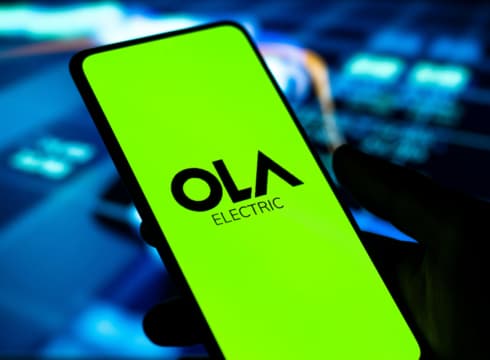In a blog post, Aggarwal called for partnering with other countries such as Australia, Chile and Argentina that have considerable lithium reserves
The view that increasing adoption of electric vehicles would increase India’s dependence on China is a myth: Ola CEO bhavish Aggarwal
The EV startup plans to commission a cell manufacturing unit with a capacity of 5GWh by the end of 2023.
Inc42 Daily Brief
Stay Ahead With Daily News & Analysis on India’s Tech & Startup Economy
Ola chief executive officer (CEO) Bhavish Aggarwal has called for building an alternate supply chain to curb the country’s increasing dependence on China for lithium.
In a blog post, Aggarwal called for localising midstream processing of lithium by partnering with other countries such as Australia, Chile, and Argentina that have considerable lithium reserves.
“China currently dominates the midstream processing of lithium. However the majority of lithium mines are located in Australia, Chile, and Argentina. China doesn’t control a vast majority of these mines. By focusing on localising the midstream processing of lithium and partnering with these countries, India can build an alternate supply chain for ourselves and the world,” the CEO said.
He called the view that increasing adoption of electric vehicles (EVs) would increase India’s dependence on China a myth.
Aggrawal also suggested that the country needs to build local supply chains for new materials and components such as motors, rare earth magnets, power electronics, and semiconductors. The Ola CEO sought to leverage India’s prowess in the IT sector, chemical and pharma industries as well as the country’s growing might in electronics manufacturing.
“To create world-class EV products and core cell technology, we need to build local supply chains for new materials and components. We can’t just be final assemblers of the products,” Aggrawal said.
Talking about Ola Electric, he said that the startup’s localised supply chain gives it a strong competitive advantage over other global and Indian EV players. The company claims to be building a facility that would enable it to work on cell tech and build its own set of intellectual properties (IPs).
In addition, the EV startup plans to commission its cell manufacturing unit with a capacity of 5GWh by the end of 2023. It plans to scale the capacity to 100 GWh in the next 10 years.
Meanwhile, Ola Electric plans to launch multiple EV two-wheelers, including premium motorcycles, over the next two years, as per Aggrawal’s blog post.
Lithium-ion batteries form one of the core components of an electric vehicle. However, this space is completely dominated by China, which controls a major chunk of the battery market.
As per a report, Chinese battery maker Contemporary Amperex Technology Limited (CATL) alone held nearly 35% of the global li-ion battery market in the first quarter of 2022.
In the absence of enough quality controls over China-made batteries, questions have been raised over the safety of such imports.
These batteries have come under scrutiny in the country after multiple incidents involving EVs catching fire this year caught the attention of regulators.
Despite the hiccups, the space continues to flourish. 2022 posted the biggest EV sales numbers on record, with 9.8 Lakh EVs registered in the country across segments.
Two-wheeler EVs have seen the highest traction, accounting for 6.1 Lakh registered units this year versus 1.5 Lakh units last year.
{{#name}}{{name}}{{/name}}{{^name}}-{{/name}}
{{#description}}{{description}}...{{/description}}{{^description}}-{{/description}}
Note: We at Inc42 take our ethics very seriously. More information about it can be found here.


